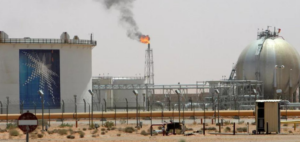The planet is facing an unprecedented climate challenge. A recent report by the United Nations Environment Programme (UNEP) highlights a troubling reality: projected fossil fuel production in 2030 far exceeds the thresholds compatible with the targets set by the Paris Agreement. This alarming forecast comes ahead of COP 28, which promises to be a decisive forum for the world’s climate future.
COP 28: A crucial opportunity for the future of the climate
The COP 28 climate conference promises to be a pivotal moment in the fight against climate change. SEI’s Ploy Achakulwisut points to the urgent need for nations to adopt robust commitments to initiate a genuine energy transition. The importance of this transition is underlined by the imperative of keeping temperature rises well below 2°C, an objective that seems increasingly difficult to achieve given current projections.
Contradictory national commitments and actions
Despite proclaimed international commitments, there is a notable gap between the promises made and the concrete measures taken by countries. However, none of the countries responsible for a significant majority of fossil fuel production and consumption have aligned themselves with the objectives of the Paris Agreement. This raises serious questions about the viability of current commitments and the political will needed to achieve a global energy transition.
The central role of major countries in energy production
The nations that lead fossil fuel production play a major role in determining the global climate trajectory. Australia, China, Norway, Qatar, the United Kingdom, the United Arab Emirates and the United States are key players in this field, and their energy policies will have a significant impact on global efforts to counter global warming.
The need for a global energy transition
The UNEP report calls for a systemic overhaul of energy policies to align climate ambitions with concrete actions. The transition to renewable energies is not only crucial to meeting the commitments of the Paris Agreement, it is also essential for future security and economic prosperity.
Given the urgency of the UNEP report’s conclusions, the forthcoming COP 28 represents a crucial opportunity for nations to realign their climate objectives with tangible action. This conference could determine the world’s ability to limit the devastating effects of climate change and move towards a viable and sustainable energy transition.






















